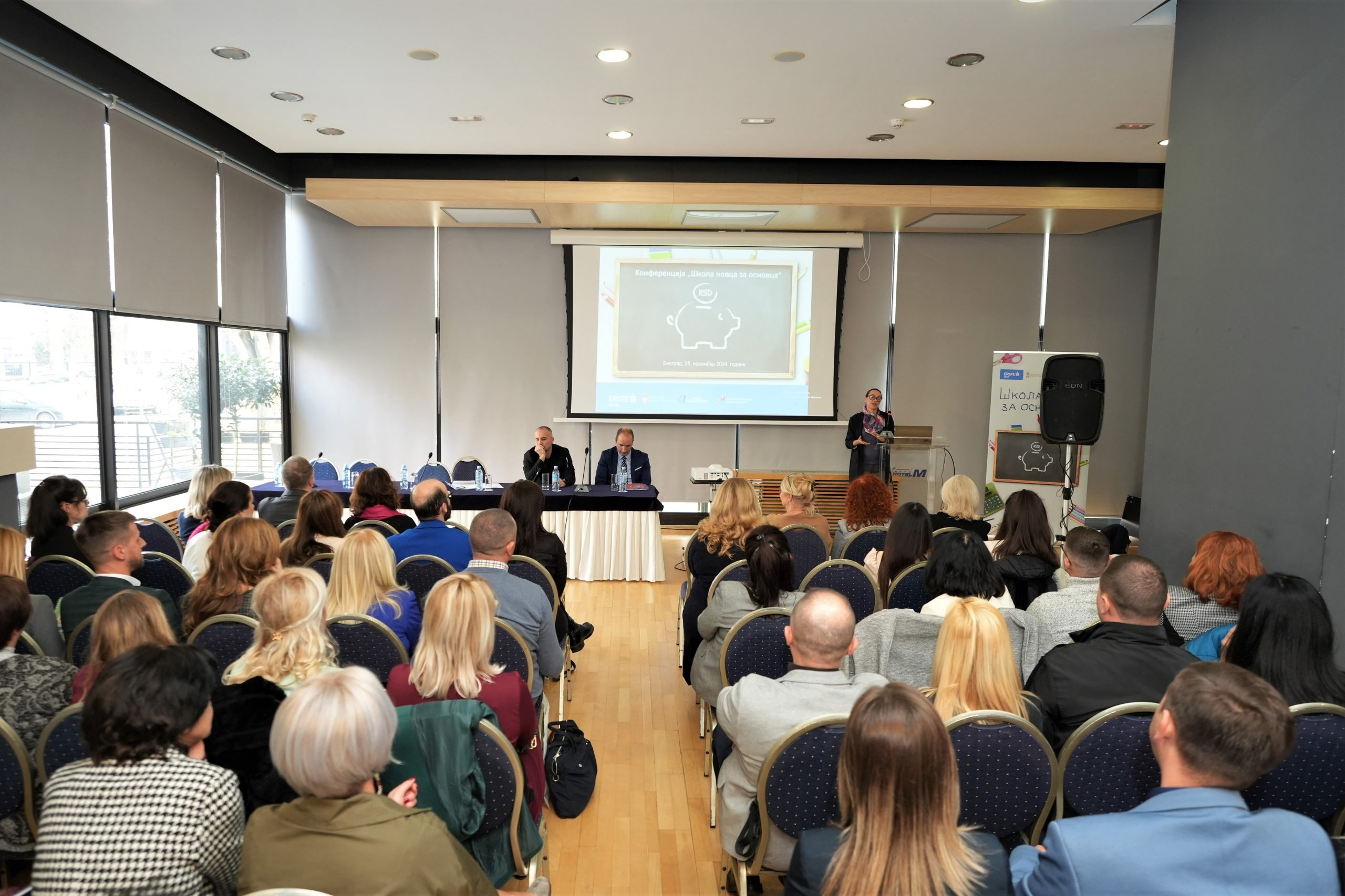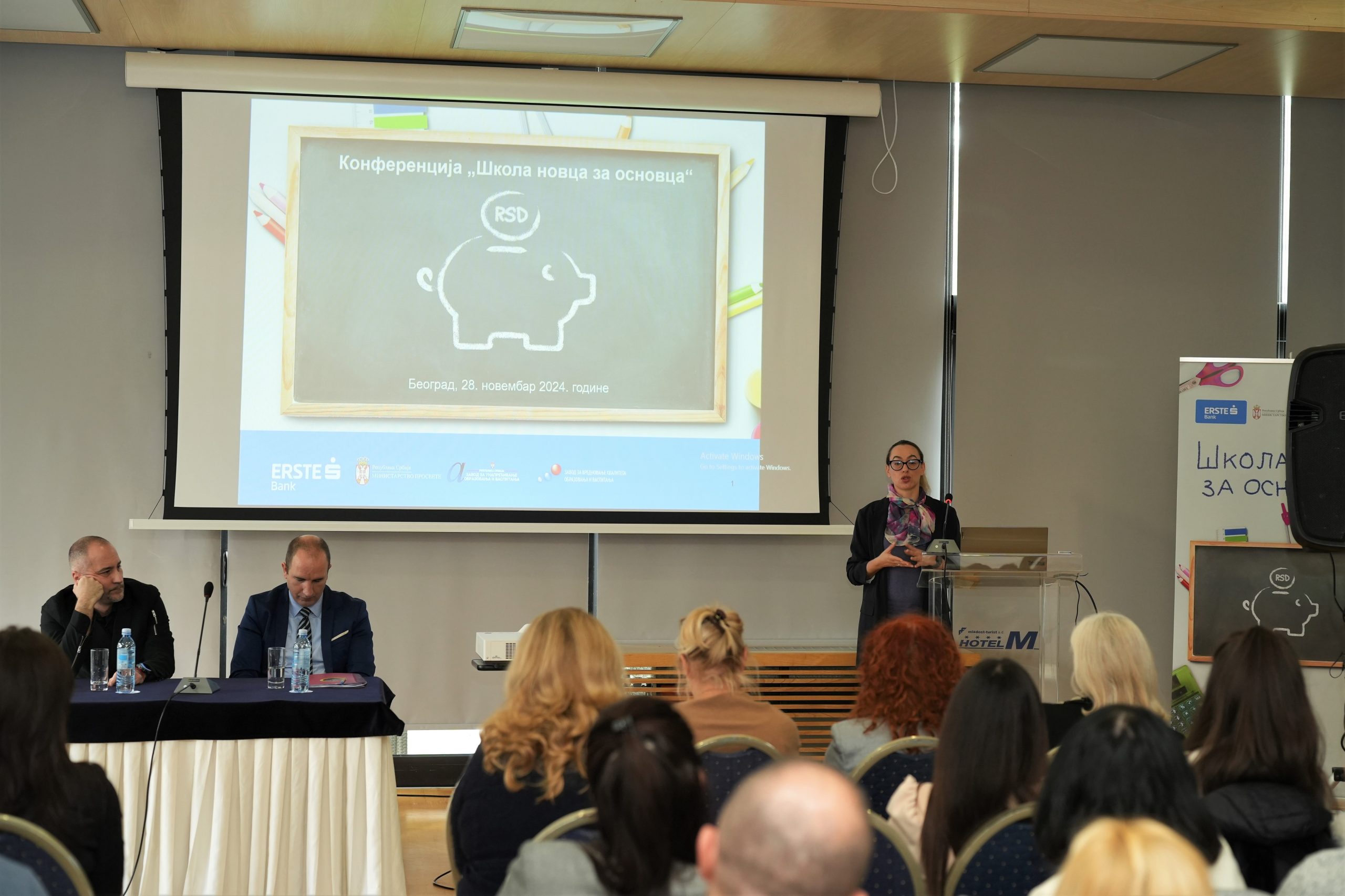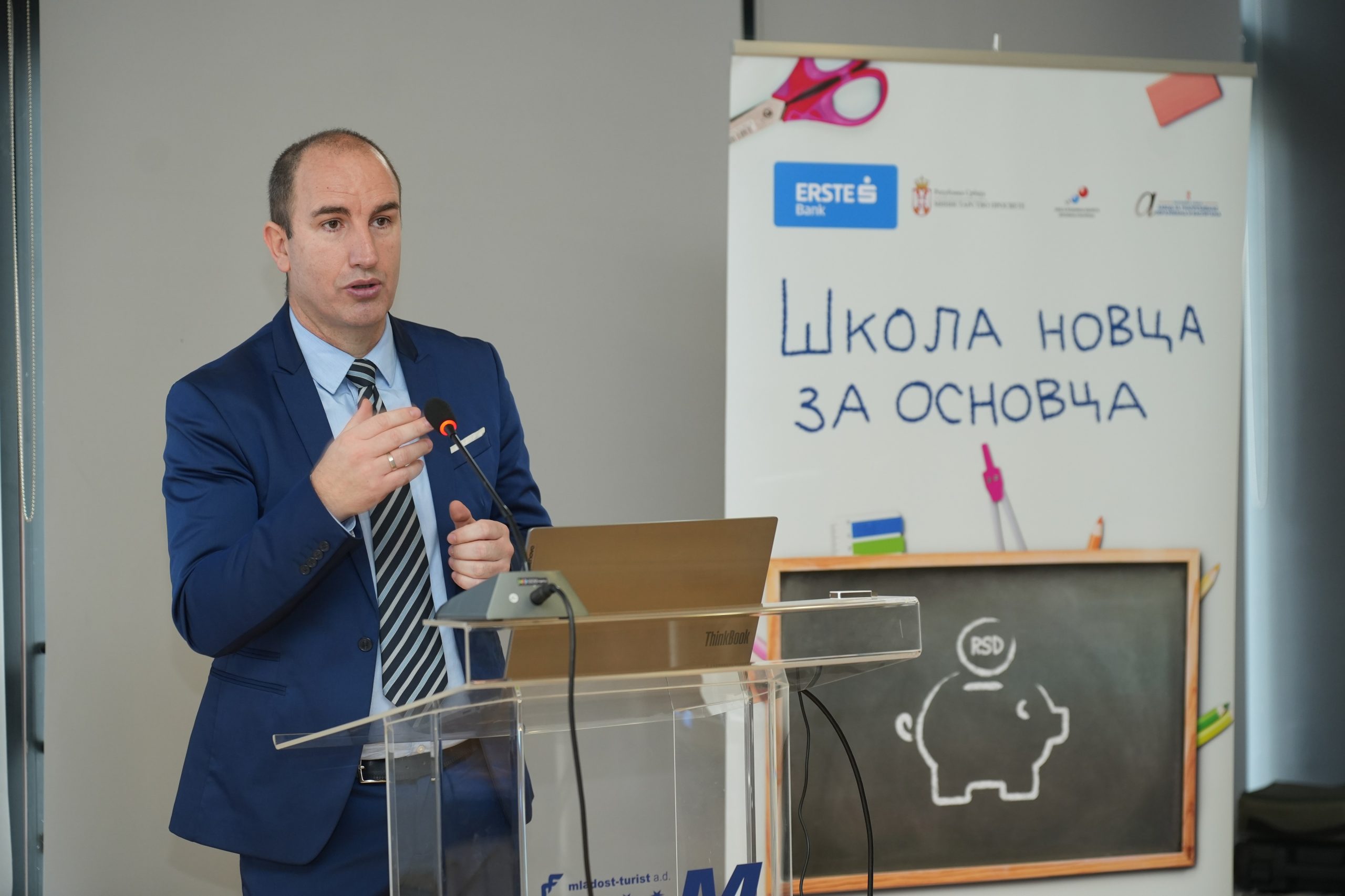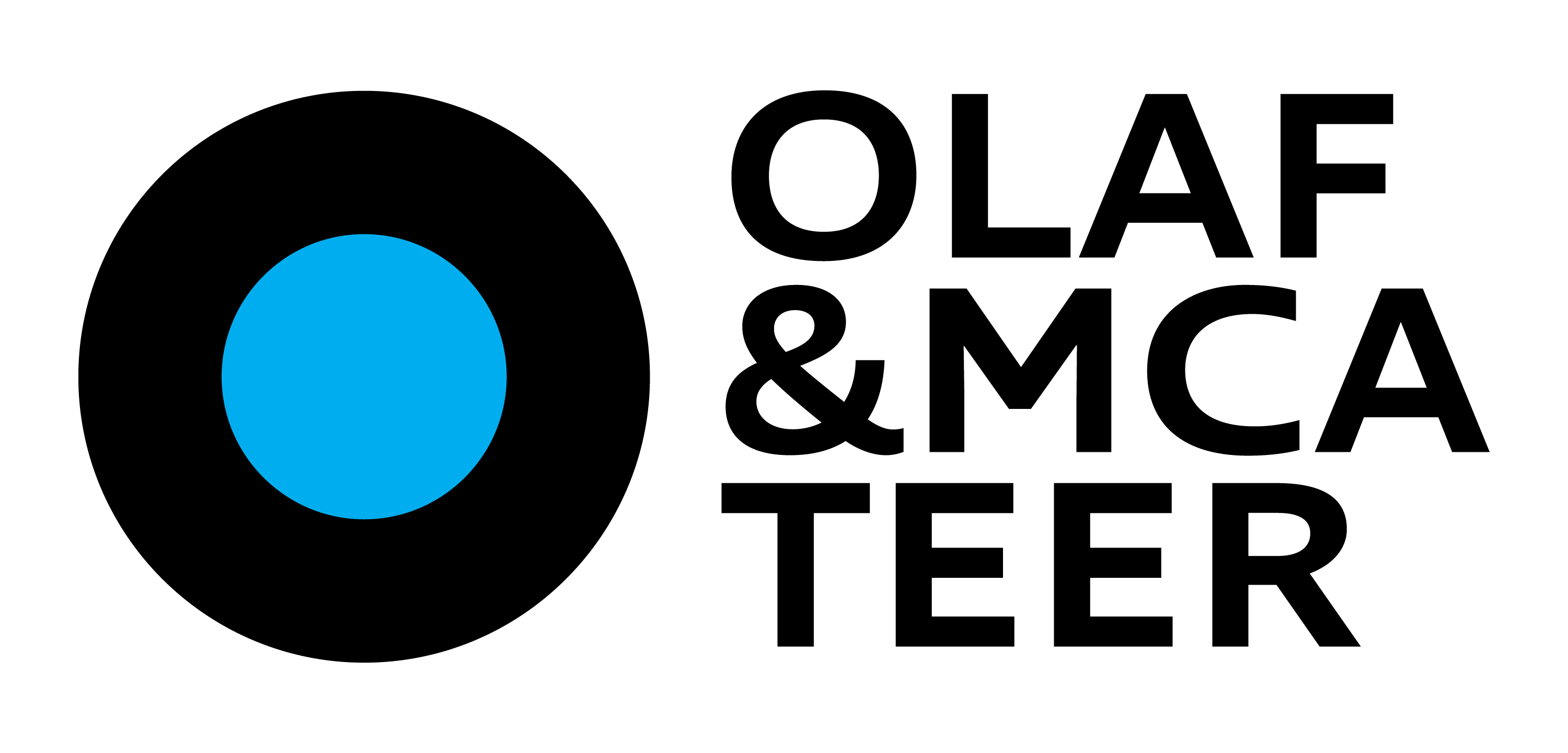
The third conference “Money school for primary school students”
Financial education introduced in nearly 200 schools
Financial literacy is one of the essential life skills needed to navigate today’s modern society. The Organisation for Economic Co-operation and Development (OECD) has included this topic in PISA testing since 2012, with Serbian students participating in financial literacy testing for the first time in 2018. Scoring an average of 444 points, the results highlighted significant challenges compared to peers from other countries. This prompted the Ministry of Education, in collaboration with Erste Bank, to launch the “Money School for Primary School Students” project in 2020. The initiative aims to enhance students’ knowledge in this area and better prepare them for the complexities of the financial world.
At the third conference of the “Money School for Primary School Students,” results were summarized, and best practices were showcased. Since the project’s inception, nearly 200 schools have joined, and approximately 1,300 teachers have undergone training. In the previous school year alone, nearly 700 teachers were educated, further strengthening schools’ capacity to impart financial literacy knowledge.

In the presence of numerous educators, teachers, school principals, and representatives from the Ministry of Education, the Institute for the Improvement of Education, and the Institute for Education Quality and Evaluation, the conference was opened by Milan Pašić, Assistant Minister of Education from the Department for Preschool and Primary Education.
On this occasion, he thanked Erste Bank for its collaboration on the “Money School for Primary School Students” project and encouraged other schools to join. “We live in a time of intense change, and it is our responsibility to provide younger generations not only with the knowledge and skills necessary for secure and responsible financial management but also to empower them to become responsible citizens aware of opportunities and challenges,” stated Milan Pašić. Dr. Zlatko Grušanović, Director of the Institute for the Improvement of Education, also addressed the attendees.

Marija Mutić, Director of the Communications Directorate at Erste Bank, also spoke at the conference opening. “As a financial institution, we see it as our duty and responsibility to contribute to the financial literacy of society. It is particularly important to us that younger generations receive proper education so they can later make informed financial decisions and better understand the complex world of money,” she emphasized, thanking the Ministry of Education for recognizing the importance of this topic.
The conference included a panel discussion titled “Improving School Operations through the Development of Cross-Curricular Competencies – Financial Literacy and Entrepreneurship.” Following the discussion, examples of best practices were presented by primary schools: “Mićo Matović” from Katići near Ivanjica, “Svetozar Marković” from Kragujevac, “Đorđe Jovanović” from Selevac near Smederevo, “Miloš Savić” from Lučica near Požarevac, and “Stefan Filipović” from Divci near Valjevo. These schools demonstrated how innovative approaches and teacher dedication can further enhance teaching and motivate students to acquire financial literacy.
Related posts
A1 Serbia launches educational game to promote online safety for children
This initiative is part of A1 Serbia’s broader ESG strategy, aimed at ethical technology use
Pet Day: Mars reminds us of the importance and benefits of pet adoption
362 million dogs and cats worldwide currently live on the streets or in shelters
IKEA unveils new edition of Its iconic STOCKHOLM collection
The latest edition features a wide range of furniture, textiles, lighting, and decorative pieces




